Ruben Portales Herrera
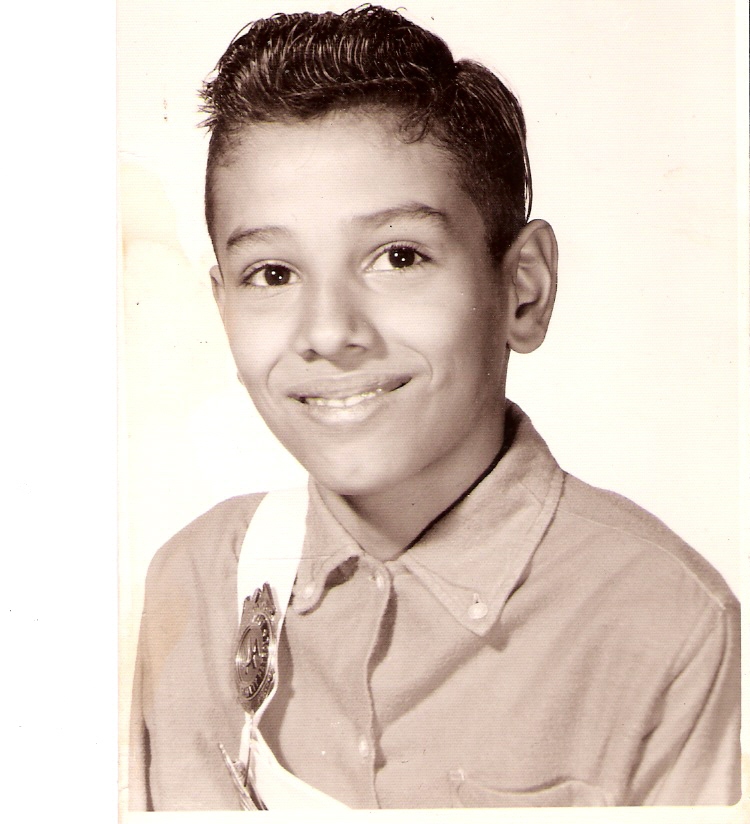

He joined the navy at a young age and lived in many places, such as: Iceland, Puerto Rico, Florida, Rhode Island and Virginia. It was in the navy he met his wife Sheree Lynn Geiger (My Mother), they were married on January 16, 1976. They had three children together, Gregory, Anthony, and me David. Ruben Received two associates' degrees in digital electronics and air conditioning. From that time on he worked in many jobs related to his field of study. He considers himself middle class. He is Roman Catholic and has a democratic affiliation. His hobbies include singing(choir in church) and being one with nature.
What did you do for fun?
I rode my bicycle, to different neighborhoods and go the rivers and creaks, climb the trees and shoot, with my slingshot, at snakes, not turtles so much but snakes. And if there were other people around I knew it was safe I would jump in the water, I would never go swimming alone. Yeah, if I knew it was safe I'd go swimming in the rivers and creaks. Back then they weren't how they are now, now they are all real cleaned up. There were actually paths, jungle paths, well I called them jungle paths because it was like you would go through areas down there and it could be the middle of the day and down in that area inside all that brush, it was dark, it was like it was night time. I would hang out at the railroad yards and watch the trains go by and put things on the track like…not pennies because hey man that's a penny, you don't put pennies, I'd put other things like washers, because a penny was a lot of money. I didn't put pennies like the rich kids did. I'd put washers and, well mostly bottle caps, soda water bottle caps. Growing also, I grew up the same time the Hemisfair was being built, so there at I H 37 where 37 and 90 meet, where they were putting all the ramps where the bridges go over each other, they had these big high ramps. So we used to go all the way up there on our bicycles and come down on it, it was neat. We used to get shopping carts, and we used to get inside em' and go down them and that was fun…except when you crashed at the end. You had to crash somewhere because the road eventually ended. So that was no fun. Then there was collecting bottles, back then you'd get like 2 cents for a bottle so, there weren't a lot of people that would throw soda water bottles away like they do now. Back then bottles were worth money so, we'd collect about five or six bottles and get about ten cents you can buy a bag of Fritos and a soda…no a bag of Fritos and a soda was more like fifteen to twenty cents. You'd have to collect a lot of bottles to get that.
Were there any places in San Antonio that you were not allowed to go, being Mexican and what not?
Yeah, there were parts of town, you knew or you were told not to go, like highlands area, going toward Highlands High School, there were a lot of whites that lived there past the Harlendale/McCollum area, there were a lot of whites, not a lot of Mexicans there. So you had to be careful in that area. Downtown there were some business's that wouldn't let us in. A lot of business's had just their costumers. I remember having to go up to the top of the balcony to watch movies, because the bottom was for the whites and the top was for the blacks (and Mexicans) it wasn't that way, it didn't say, there were no signs that said that, but everyone already knew that the Mexicans and the blacks went on tops and…..I mean that was good, I had a better view up there at the to really.
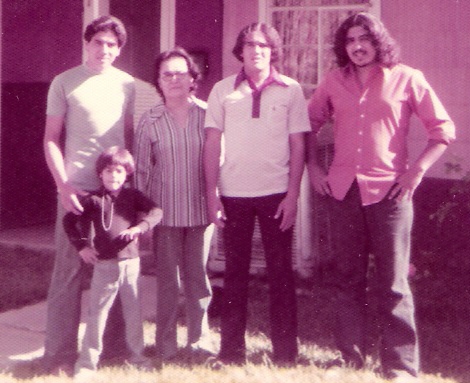
What was your first job, and what age did you start working?
My First job, I would say, my first real job was at a gas station where I was getting paid, I think about fifty cents a day. And what I would basically do was…that's when the gas was…I remember the gas station I was working was having a gas war with another station and the lowest I ever saw the price was nine cents for a gallon of gasoline. But normally the gas price was, I remember about eleven cents to twelve cents, but during a gas was about nine.
What was your least favorite job?
My least favorite way to make money was doing production work. I've always like challenging jobs where things are changing, where the faces are changing. I would hate to work at a job…well I was working at a job where I looked around and I saw all the faces and I said, If I stay here for the next thirty years, these are the same faces that I'm going to see for the next twenty to thirty years, and I said I don't think I can stand looking at these people for the next twenty years. So I wanted to get out of the production type work so I figured I was going to have to learn a trade and that's when I got into the air-conditioning trade. And that lead to so many thing like building maintenance, apartment maintenance work, I worked with machinery and that's what I like doing, doing different things not just making one thing, one thing, one thing for the next twenty years. Some people can do that but I'm not one of those types of people. I have to have a challenge, I have to like going to my job. I'm blessed to be able to do a lot of things but I think that's because of always having an interest in science, having and interest in physics, and in mechanics…I do the kind of work I do now because as a young boy I had always had and interest in science and in physics, trying to figure out why things are the way they are even though I hurt myself a lot of times figuring it out. I'd actually have to do experiments to figure 'wow that's the way that works' and I would hurt my self but, that's part of learning something, sometimes you get hurt. But I think that's what books are for, so you just read about it instead of...(laughing) 'Oh if I mix gasoline and fire…whoops' but I wanted to try it…I could have just read a book (more laughing) I wouldn't have got hurt.
What was school like when you were growing up?
I remember the teachers always saying that they didn't like for us to speak Spanish. Even in the play ground, we knew not to speak Spanish in class but out in the play ground we felt that we could talk to each other in Spanish. We had to be careful and make sure there wasn't a teacher around to hear us, but we would speak Spanish. They would say 'You're in America you don't need to speak that' and 'you're Americans now'. I glad that the world has changed and this country see that were not the only country in the world. There's a big world out there. I'm glad that I was one of those stubborn little kids that the teacher would always send to the principal for speaking Spanish in school. And now I speak better English than most English speaking people. Most people are surprised when they speak to me on the phone and then they meet me, they weren't expecting to see a Mexican. I'm glad, I'm proud and I think that's what makes a county great, is a county that can change with the people because when a county doesn't want to change, and forcing things on people, all you have to do is read history, it doesn't work and you can't force your will on others. This county was based on the good for everyone not just for a few over here because they don't want to change and they don't want to be a part of a world that's changing. You know what, we pay taxes, we work, we die in the wars and not just we Mexicans but Chinese, blacks, Japanese, Native Americans.
What was your favorite subject in school?
History, American history, world history, I especially liked Texas history. The way Texas became a state, how it became a state and how so many countries fought over this piece of land and the way that history was taught to my generation. I don't know how its taught now but in my generation, there was a lot of truth but there as also a lot of cover up as to how things really happened and not only in this history like the people in Mexico have been brain washed also. A lot of people died needlessly because of hatred. It happened all over the world its happening now. I'm glad that it's a little bit under control here in this country but we have a whole new set of problems now. But anyway, American history, Texas history and Math. I've always liked math because I was good at it. Just one of the bad things was I would never do my home work. I didn't have time to do my homework, I had work. When you're going to do something like math you have to practice and practice and work with it until you start to understand it. I wish I did have time for it. And when I finally had a chance to do math in college people would go 'damn how do you do that', people are amazed that I can add, multiply, subtract and divide in my head.
Was there anything you wanted to do in college beside what you got your degree in?
Not in college, when I was a kid I wanted to be an artist. I loved to draw. I was probably one of the original graffiti artists, I would use rocks. I would break rocked in half and the inside would be chalk and draw on the side walks and on the outside of buildings, I would get caught and people would run me off.
Did you ever pursue the artist thing?
I did it only because I liked it. But pursuing, going to school, getting any type of training no. My father told me it was something that I would probably never be able to make a living at, and for me to get that crazy idea out of my head. People like us were just going to be working people, punching a clock, and we needed to get those ideas out of our head because that was for people who could afford to draw and have some body to pay their bills. Those opportunities were not there in the ghetto. I became a clock puncher, punching the clock.
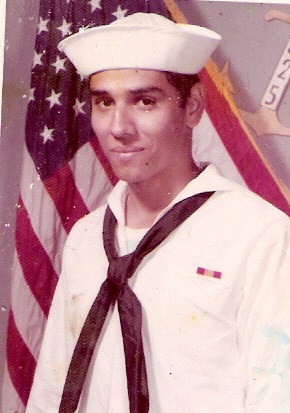
What about your military career? When did you join and what not?
I joined in 72'. I joined and the draft was going on. When I was eighteen I didn't make the draft, at nineteen I didn't make the draft and a twenty I didn't make the draft. My dad was kind of like 'Well what are you going to do with your life, are you just going to live here the rest of your life' and I was already starting to get in with the bad crowds smoking pot, dinking beer, and he didn't like that so he basically told me in a nice way that I was going to have to do something, either leave or what ever but I wasn't going to be living there any more so I join the military. I put in for amphibious training in San Diego so I was guaranteed to go to Vietnam, because I wanted to go to Vietnam. It wasn't given to me and I was disappointed and when I asked why, they said my scores were a little to high and that they were going to send me in to submarine warfare school instead to be an electronics technician. I went to the school and they didn't teach me electronics, it had nothing to do with electronics. And by the time it was time for me to re-up it was 76', the Vietnam war was over, the economy was bad, the gas prices had gone up, people were out of jobs , I had met your mom, and to her it didn't mater if I stayed in or not, to her it didn't matter. I was afraid because everyone was telling me that there were no jobs. I went to and E8 chief, that I had work for, and I asked him what I should do, he basically told me 'Herrera, you're a really good sailor, if I could have anyone working under me you would be one of those people…but, you're just not military material, not for this type of military. You tend to ask too many questions and you tend to do things your own way and not the military way'. I knew what he was trying to tell me, that it was best if I didn't stay in.
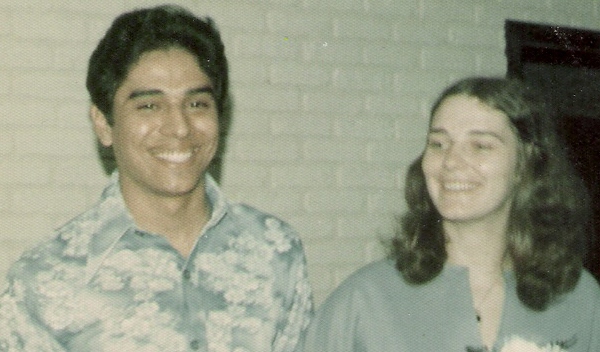
Is there anything else you would like to add to this interview?
I would just like to add, for those who are at school and wondering…what ever your goals are and what ever you want to be, always have an open mind. Do not be afraid and listen to your heart.
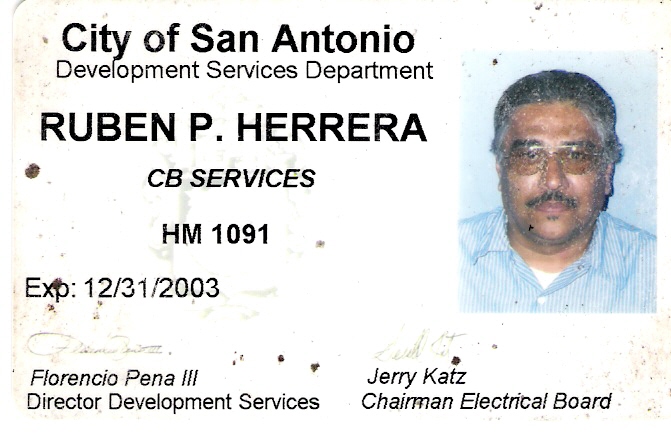
The Handbook of Texas Online is a multidisciplinary encyclopedia of Texas history, geography, and culture sponsored by the Texas State Historical Association and the General Libraries at UT-Austin. It was produced in partnership with the College of Liberal Arts and the General Libraries at the University of Texas at Austin. Copyright © The Texas State Historical Association.
Perry-Castańeda Library Map Collection. Geographical and historical maps of continents, countries, counties, cities; maps relating to history and current news events. University of Texas Libraries.
Cost-of-Living Calculator. The calculator uses the Consumer Price Index to do the conversions between 1913 and the present. The source for the data is the Bureau of Labor Statistics. The Consumer Price Index reflects the cost of items relative to a specific year. The American Institute for Economic Research. P.O. Box 1000. Great Barrington, Massachusetts. 01230.
Home Pageof Highlands High School
Home Pageof the Harlandale School District
Photographs and/or documents on this website were provided by Ruben P Herrera and Sheree L Herrera. .